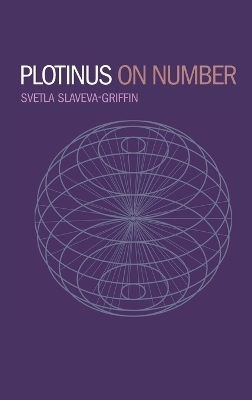
Plotinus on Number
Seiten
2009
Oxford University Press Inc (Verlag)
978-0-19-537719-4 (ISBN)
Oxford University Press Inc (Verlag)
978-0-19-537719-4 (ISBN)
Plotinus on Number studies the fundamental role which number plays in the architecture of the universe in Neoplatonic philosophy. This book draws attention to Platinus' concept as a necesscary and fundamental link between the Platonic and the late Neoplatonic theories of number.
Ancient Greek Philosophy routinely relied upon concepts of number to explain the tangible order of the universe. Plotinus' contribution to this tradition, however, has been often omitted, if not ignored. The main reason for this, at first glance, is the Plotinus does not treat the subject of number in the Enneads as pervasively as the Neopythagoreans or even his own successors Lamblichus, Syrianus, and Proclus. Nevertheless, a close examination of the Enneads reveals that Plotinus systematically discusses number in relation to each of his underlying principles of existence--the One, Intellect, and Soul. Plotinus on Number offers the first comprehensive analysis of Plotinus' concept of number, beginning with its origins in Plato and the Neopythagoreans and ending with its influence on Porphyry's arrangement of the Enneads. It's main argument is that Plotinus adapts Plato's and the Neopythagoreans' cosmology to place number in the foundation of the intelligible realm and in the construction of the universe. Through Plotinus' defense of Plato's Ideal Numbers from Aristotle's criticism, Svetla Slaveva-Griffin reveals the founder of Neoplatonism as the first post-Platonic philosopher who purposefully and systematically develops what we may call a theory of number, distinguishing between number in the intelligible realm and number in the quantitative, mathematical realm. Finally, the book draws attention to Plotinus' concept as a necessary and fundamental linke between Platonic and late Neoplatonic schools of philosophy.
Ancient Greek Philosophy routinely relied upon concepts of number to explain the tangible order of the universe. Plotinus' contribution to this tradition, however, has been often omitted, if not ignored. The main reason for this, at first glance, is the Plotinus does not treat the subject of number in the Enneads as pervasively as the Neopythagoreans or even his own successors Lamblichus, Syrianus, and Proclus. Nevertheless, a close examination of the Enneads reveals that Plotinus systematically discusses number in relation to each of his underlying principles of existence--the One, Intellect, and Soul. Plotinus on Number offers the first comprehensive analysis of Plotinus' concept of number, beginning with its origins in Plato and the Neopythagoreans and ending with its influence on Porphyry's arrangement of the Enneads. It's main argument is that Plotinus adapts Plato's and the Neopythagoreans' cosmology to place number in the foundation of the intelligible realm and in the construction of the universe. Through Plotinus' defense of Plato's Ideal Numbers from Aristotle's criticism, Svetla Slaveva-Griffin reveals the founder of Neoplatonism as the first post-Platonic philosopher who purposefully and systematically develops what we may call a theory of number, distinguishing between number in the intelligible realm and number in the quantitative, mathematical realm. Finally, the book draws attention to Plotinus' concept as a necessary and fundamental linke between Platonic and late Neoplatonic schools of philosophy.
Svetla Slaveva-Griffin is Assistant Professor of Classics, Florida State University.
THE UNFIGURED FIGURE OF SOUL'S DANCE
| Erscheint lt. Verlag | 28.5.2009 |
|---|---|
| Verlagsort | New York |
| Sprache | englisch |
| Maße | 236 x 157 mm |
| Gewicht | 414 g |
| Themenwelt | Geisteswissenschaften ► Philosophie ► Philosophie Altertum / Antike |
| Geisteswissenschaften ► Sprach- / Literaturwissenschaft ► Anglistik / Amerikanistik | |
| Geisteswissenschaften ► Sprach- / Literaturwissenschaft ► Literaturwissenschaft | |
| Mathematik / Informatik ► Mathematik ► Geschichte der Mathematik | |
| ISBN-10 | 0-19-537719-2 / 0195377192 |
| ISBN-13 | 978-0-19-537719-4 / 9780195377194 |
| Zustand | Neuware |
| Haben Sie eine Frage zum Produkt? |
Mehr entdecken
aus dem Bereich
aus dem Bereich
mit Sokrates, Seneca, Platon & Co. im Gespräch
Buch | Hardcover (2023)
FinanzBuch Verlag
CHF 25,20


